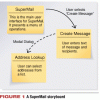 |
Lo-Fi GUI Design This article takes you from “what happens before Lo-Fi Design” (understand the user) to storyboarding (with post-it notes), through final implementation. Other steps include window design (get out the scissors) and simulated execution. This thorough, step-by-step explanation of design method is supplemented with graphics and a usability sidebar.
|
|
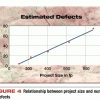 |
Building Productivity Through Measurement Collecting and analyzing some simple measures on your application development project will provide a set of building blocks that can be used to manage your projects. This data will improve your success rate and reduce project development risk. Here are some simple measures that can improve your development efforts.
|
|
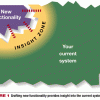 |
Requirements When the Field Isn't Green Most advice on requirements gathering is targeted for brand-new "green-field" projects. What about evolving projects? Here's a seven-point strategy for those of us working on maintenance, updates, and legacy documentation.
|
|
|
|
Calculating the Value of Testing From an executive's perspective, software testing is not a capital investment in the physical plant, an acquisition, or another readily accepted business expense. A Quality Assurance Manager describes how to present testing as a business-process investment.
|
|
|
|
What's With These Buffer Overrun Bugs? Many of the culprits responsible for security breaches found on corporate networks and the Internet today have used buffer overrun problems as the main way to exploit the system. Here is an examination of buffer overrun bugs and how to prevent them.
|
|
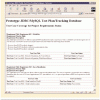 |
Bringing Your Test Data to Life Tracking test results is one of the fundamental tasks that your software testing organization must perform to be successful. Explore how a customized database can enhance that process.
|
|
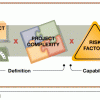 |
Estimating Time, Effort, and Cost Correctly judging project needs and scope is a challenging task. Here are some techniques and tools for accurately predicting project deliverables.
|
|
|
|
Extreme Testing Rapid application development means you have to accept that the things you build will need to change. Approach development in a way that makes it easy to transform yesterday’s code into what you need tomorrow. This article explains how testing works in the world of Extreme Programming.
|
|
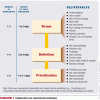 |
Collaborate for Quality Project teams are searching for ways to develop requirements that are as free from defects as possible. Here's how you can use collaborative workshops, along with walkthroughs and QA checklists, to develop high-quality requirements.
|
|
|
|
Build It or Buy It? When software professionals need a tool to support their work, a common dilemma is whether to build the necessary tool or purchase it. Here's a look at the benefits, risks, and myths associated with each approach.
|
|
